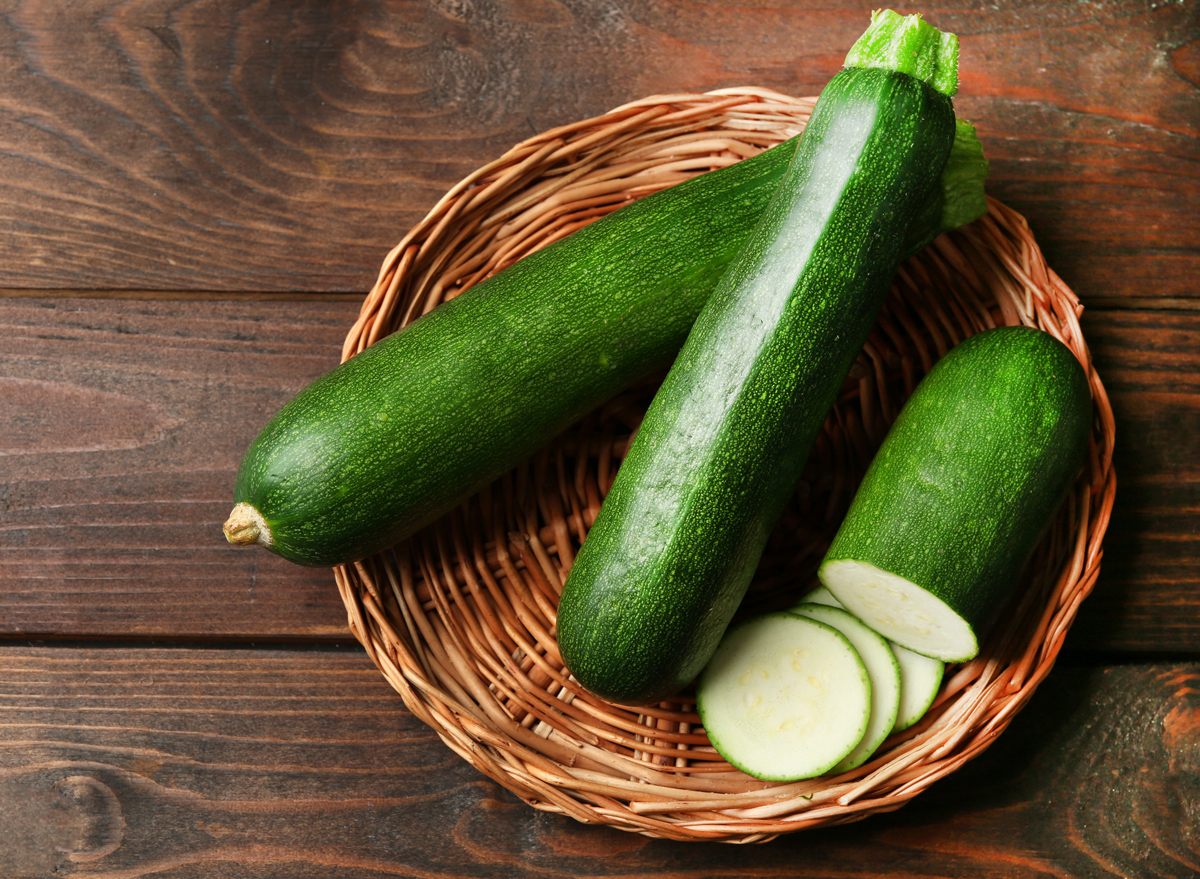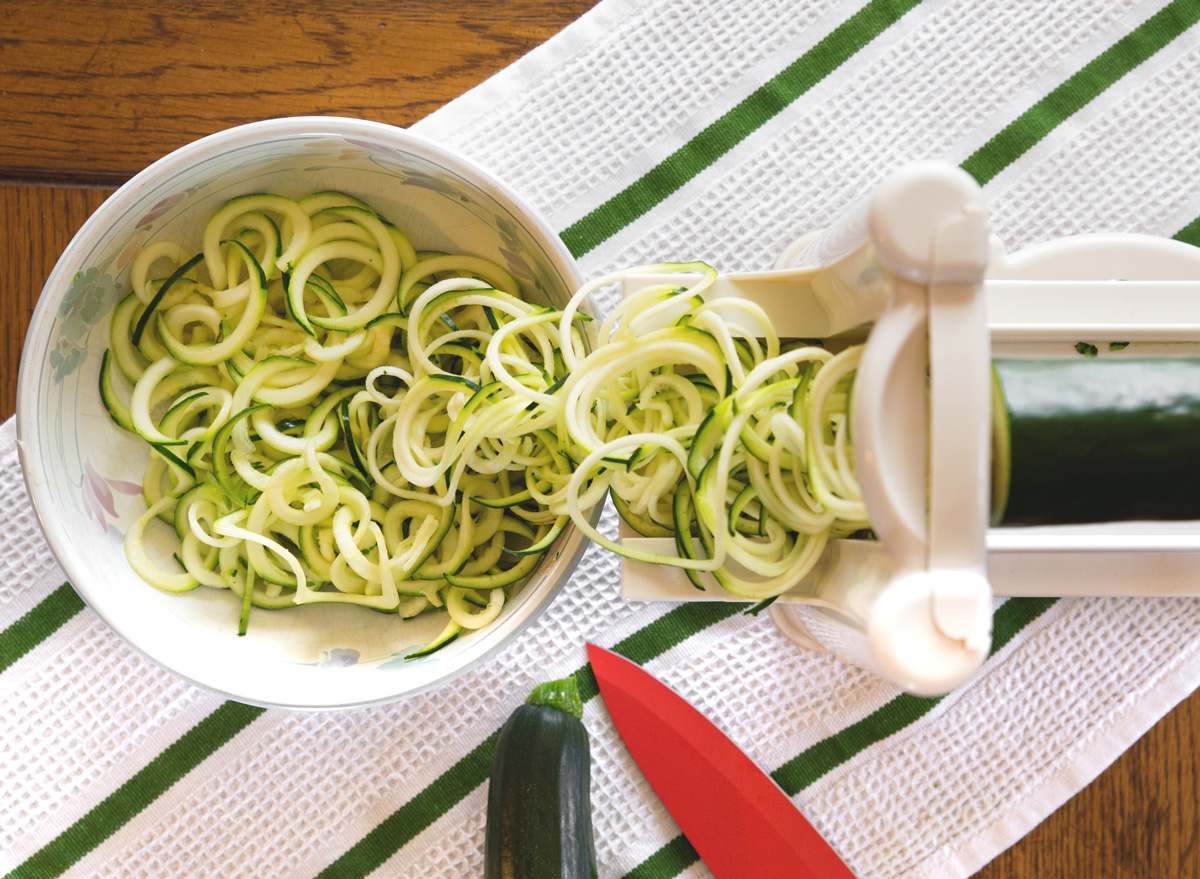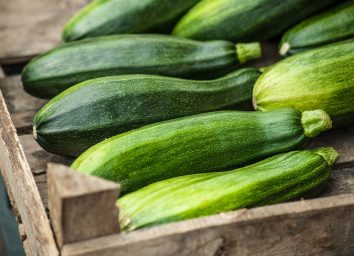What Happens To Your Body When You Eat Zucchini

If you're trying to increase your daily intake of vegetables, think outside the salad bowl. Whether you're filling them with your favorite proteins and spices to make zucchini boats or spiralizing them into zoodles, nutrient-rich zucchini is a smart addition to any meal plan.
The benefits of zucchini extend far beyond making your regular menu more enjoyable, though. Read on to discover what happens to your body when you eat zucchini, according to science. And for more great additions to your diet, check out The 7 Healthiest Foods to Eat Right Now.
You may reduce your cancer risk.

Whether you have a family history of cancer or other risk factors for the condition, adding some zucchini to your regular meal plan may help protect you in the long run. A research analysis published in the journal Nutrients in 2017 determined that zucchini not only exhibited cancer-fighting properties, but it also increased the rate of death for certain types of cancer cells. For more ways to reduce your chances of developing this disease, check out the 50 Best Foods That Lower Your Cancer Risk.
You may lose weight.

Zucchini is a plentiful source of carotenoids—including lutein, beta-carotene, and zeaxanthin—which are types of plant pigments frequently found in fruits and vegetables with yellow, red, and orange hues. For those trying to lose weight, increasing consumption of carotenoids is a particularly smart choice: a 2012 study published in the journal Nutrition & Diabetes found that higher levels of carotenoids in study subjects' blood were linked to higher weight loss and fat loss. For more simple ways to slim down, check out these 15 Underrated Weight Loss Tips That Actually Work.
You may lower your risk of heart disease.

Adding some zucchini to your diet might just be the easiest way to improve your heart health. In a study published in Circulation Research in 2018, 29,103 were men observed over a three-year study period and 31-year follow-up period. What researchers discovered was that those with higher serum beta-carotene levels had lower rates of both heart disease and stroke, as well as lower rates of death from any cause.
You may improve your immune health.

You don't have to turn to citrus fruits to increase your dietary intake of vitamin C—zucchini is a plentiful source of the essential nutrient. In a single large zucchini, you'll get 57.8 milligrams of vitamin C, more than 60 percent of the RDA for men and over 75 percent of the RDA for women. And with all that vitamin C comes a major immune boost—multiple studies have demonstrated that adequate levels of serum vitamin C may have a preventative effect against infection and may lessen the severity and duration of illness among those who do get sick.
You may regulate your digestion.

If your digestion has been sluggish as of late, adding some zucchini to your meal plan may help. In addition to being a rich source of water, which can help move food through the digestive tract, a single medium zucchini packs two grams of fiber—eight percent of your daily RDA—which can make your digestion more regular in no time. And for more ways to make your gut happier and healthier, check out these 20 Foods That Relieve Your Gut Problems, According to Dietitians.
Read these next:








